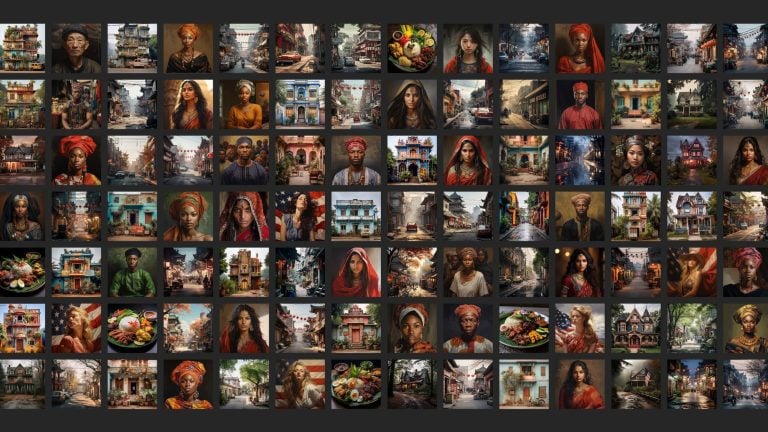- cross-posted to:
- [email protected]
- [email protected]
- cross-posted to:
- [email protected]
- [email protected]
Rest of World analyzed 3,000 AI images to see how image generators visualize different countries and cultures.
I am glad that somebody is writing about this, because this is phenomenon is - to an extent - US tech hegemony made manifest.
The US has an outsized influence over the internet, due to its tech giant’s dominance over all platforms. There is an inherent bias towards the US’ general public in regards to what these platforms do and who their owners consider to be their target audience. New platforms are in English, launch in the US first and adhere to US laws (which they consider to be applicable worldwide). So US users flock to it and its their worldview which inevitably dominates the discourse, whether that is in writing or in stored pictures.
The AIs only reproduce these biases, because they work with the data that these US-centric platforms attract.
Another interesting experiment, which I did not intend to perform, involved me researching some style ideas using the new Stability XL.
It’s pretty cool, for someone like me who has a difficulty envisioning individual clothing pieces into a whole outfit that expresses my identity.
At first it was fun to see all the combinations it generated, and all beautiful women I would certainly want to look like.
But what I noticed, certain features dominated the results. The portraits are all thin, flawless skin, models like perfect dolls. Strong profiles, perfectly proportioned noses and lips. I mean, yes if I spend 5 hrs with a professional makeup artist, maybe my face will look this way. But every day?!
So I tried to refine the results. How about a natural look, with no or minimal makeup? An average looking person, but with great style and fashion sense. It was actually really difficult to make that happen. I still haven’t found a fully satisfying outcome. It seems that style and beauty imply perfection, but when I’m out seeing real women, their imperfections are the charm.
And suddenly it hit home that the AI is reflecting the pressures on all of us, especially women, to meet unrealistic standards of beauty. Rather than working with who we are and what we have, and being confident in that.
I didn’t want or need perfection, but that is what it showed me. Chasing after that will cause me so much frustration and disappointment.



